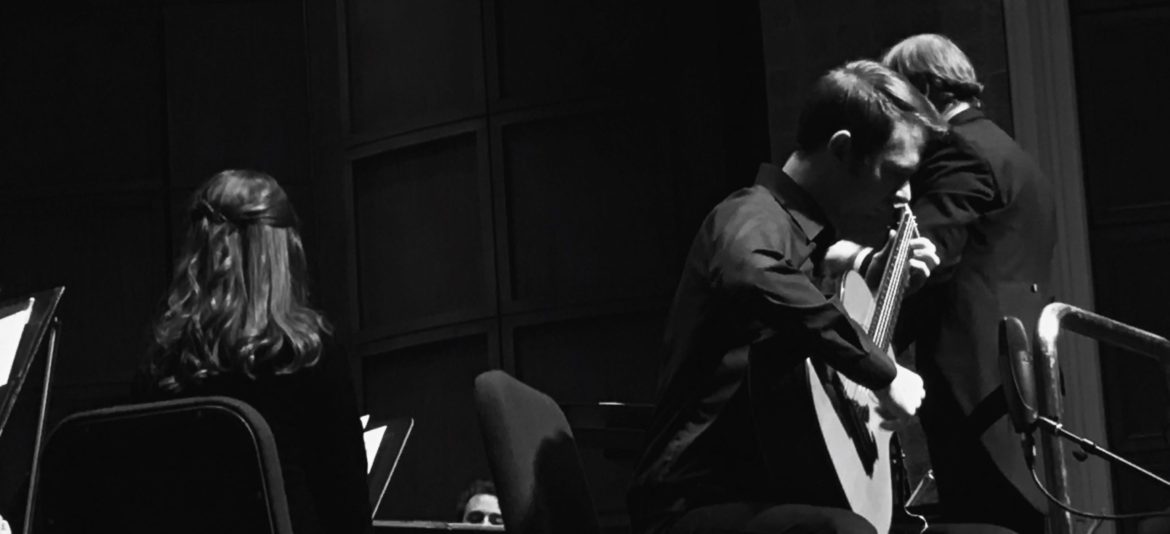Ready-Made Corporate Grief
I have two memories I’ve been comparing in my head lately. One is recent; one from more than a decade ago.
When my grandmother was in hospice care, slowly laboring toward death, our family gathered around her as families do and have done for all of history. With only palliative care nurses stopping by we had hours of uninterrupted time. Someone thought to bring a stack of hymnals, and much of that time was spent singing hymns together. I was asked to bring my guitar to play for her, but mostly we sang unaccompanied. This was in 2009.
Just recently, a family member (a first cousin) died tragically and unexpectedly. At his funeral Amazing Grace and It is Well were on the program to sing corporately. In a crowd of over 200 (mostly christians but of mixed denominations) I expected those songs to be known by nearly everyone. Noticing the singing was weak I looked around. It appeared at least half of the attendees did not know those songs, at least not well enough to feel comfortable singing them.
A little later we had a song played over the loudspeakers. It was a classic example of a modern worship song. Simple structure, sparkling high-ends, reverb, a very catchy hook. There were highly individualized reactions of emotion and worship as the cleanly produced music washed over us. In the moment, it was more pungent than the congregational songs by far.
It seems that in that moment of community grieving, we didn’t have the ability to comfort one another. We needed another body, a corporation, to make it for us. Our grief was commodified because our community traditions have been eroded away to almost nothing.
It made me wonder, how much longer will any group of christians be able to gather and sing a song they all share in common? Is that day already passed? If Amazing Grace is now not a shared experience of American christians in the heart of the bible belt, what is?
I have no aesthetic, moral, or worship war argument to make regarding new church music (not here at least, catch me later). The fact is I like much of it, have benefitted from it, and have led it. But I am fairly convinced we aren’t considering one of the most important roles music should fill for the church: community.
In a recent interview Andy Crouch mentions how he “has lived through the collapse of congregational singing in America.” At the same time, we are living through the “modern-hymn” renaissance. And it’s true, there are many songs of significant substance and quality being written. I suspect there are as may (or more) songs of a high quality being written now than ever before. I love many of them. I’m thankful for them, and I’ve learned things from them.
Modern hymns won’t solve the real problem facing church music though. Many new songs may be vapid, but the quality of songs isn’t the point. The problem is that keeping a strict diet of new songs impoverishes the church community of an in-common canon of songs known by heart and available for use during times of community need. This disconnect is particularly strong across generations.
Does the church in America today have a death-bed hymnal? The church band and worship leader will deliver ever-hyped, slickly produced, micro-doses of “worship” on a weekly basis. You can find the same songs in a similar style on Spotify to bring into your life, but good luck singing it in your family devotions.
We have substituted the deep rootedness and comfort of singing together around the death bed for individual adrenaline shots of pre-made emotion. There is potency to this music in the moment in all its highly technical production, but it requires that production for its affect. It doesn’t translate to smaller, casual settings. Out in the wild, where you live and work and suffer as a family and community (that is, your life) the best you will likely get is a tinny version played through the 1/2 inch speaker on your phone.
This flows directly from the musical style, song choices, and technical productions of the church.
For those who choose songs for worship we must ask ourselves, when it comes time for the elderly of our church to die will the young people in their lives know the songs that will be a comfort to them? Will they be reduced to playing tracks on their phone? Have we all just agreed that it’s acceptable to cut off entire generations from one another? The community cost of such a decision is so high, but most of the time it is invisible. We decide against the tradition because we don’t have to pay the cost in the moment.
The note comes due at the most important events in our community: our weddings and funerals. These are the moments when a diverse group (generally from different churches) gathers for corporate celebration or grief. And here we find out just how eroded and fractured our community traditions have become.
When I come to die, don’t give me ready-made corporate grief. Give me Jesus and some hymns.
